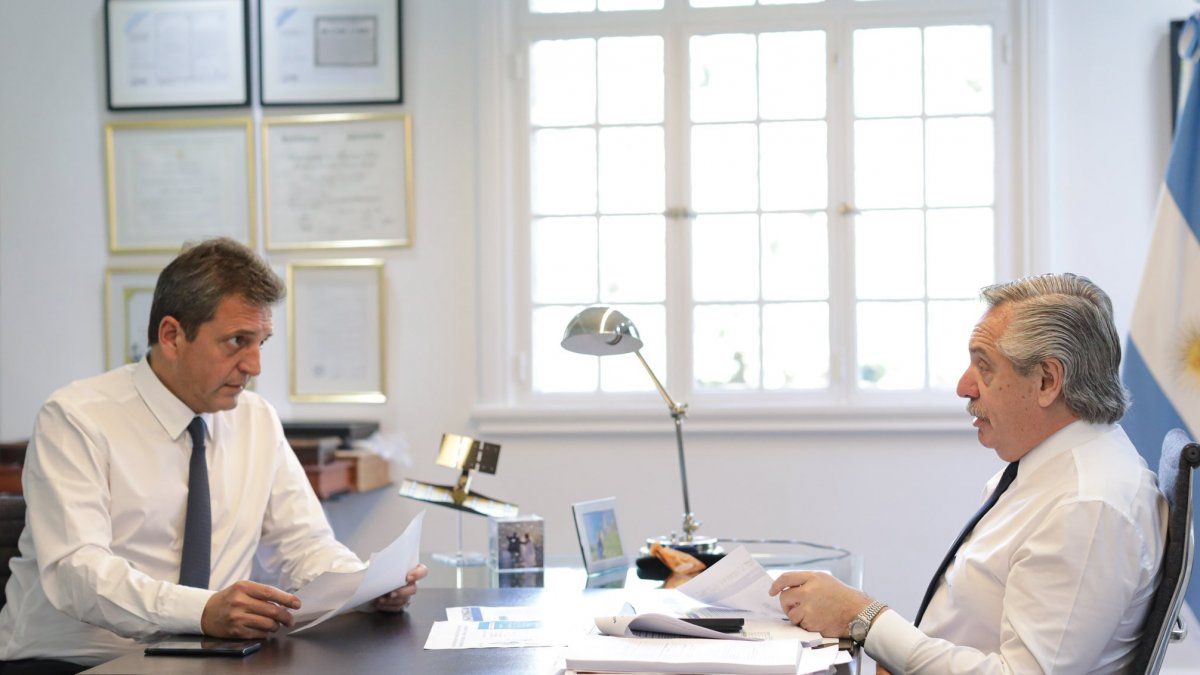However, the axis of the policy that Batakis came to enunciate – the control of public spending – in fact did not get the backing of his own government.
In this sense, decisions such as the $11,000 bonus for the beneficiaries (about 1.3 million) of the Trabajar plan are inscribed – with a cost of more than $14,000 million -, the extension of the pension moratorium (which would include 120,000 new beneficiaries), the transfer of public sector employees to the plant or the advance payment of expenses decided by different ministries (before the prospect of cuts), according to information circulating in the Palacio de Hacienda.
Instead, in the environment of Cristina de Kirchner It is noted that the vice president endorsed the change, concerned, among other aspects, about the escalation of the dollar and its consequences on inflation and the purchasing power of the population.
Massa begins his management with the right foot. The news of his entry into the cabinet was received by the markets with a double-digit rise in public debt securities and a collapse of alternative dollars that, if they reached a parity of $360, ended Friday below $290 .
Beyond the enthusiasm, there is agreement among economists regarding the delicate nature of the situation. Just a couple of facts about it: inflation is projected between 7.5% and 8% for the current month and net reserves amount to just 2,000 million dollars (equivalent to about 10 days of imports, according to data from Cohen).
The situation in this field remains very complicated. The government tried to encourage the liquidation of the remainder of the grain harvest (estimated between 12,000 and 20,000 million dollars, according to different estimates), but after the announcement of an incentive for soybean exporters (they will be able to buy “solidarity” dollars) the BCRA not only did not buy foreign currency, but lost about 370 million dollars in three trading rounds.
To rebuild the external sector, one of the keys is to maintain the agreement with the International Monetary Fund and, from this point of view, the new minister will have to deal with the expansion of public spending that he carried out during his administration Martin Guzman.
Adjustment
The latest official data shows that total outlays rose 11.4% during the first half of the year (after inflation). And, according to the consulting firm pxq, this expansion was not explained only by the increase in energy subsidies in the context of the war.
With the exception of transportation subsidies, all components of public spending expand in real terms. In particular, it is noteworthy that public works in the first half of 2022, a year in which there are no elections, is 16.6% higher than in the same period of 2021, at the dawn of the mid-term election.
Faced with this scenario, the latest review by the IMF technicians indicates that this expansion of public spending of almost 12% should be moved to a contraction of contraction of 8% in the second semester, a task that without a doubt will demand the entire political waist of the new minister.
From the Government it is indicated that Massa will be able to soften this adjustment from the obtaining of greater international credits or a more efficient management of the loans already agreed. In this regard, it is estimated that there are some 3,000 million dollars in lines that are being sub-executed by different areas of public administration.
Good international relations and business contacts would also make it possible to attract international investment. In Massa’s inner circle it is said that, dizzy from the current situation, we often forget the resources available to the country – particularly food and energy – which are what the world most demands today.
Of course, to obtain investments, an orderly macroeconomic framework is required. In this sense, the first important measure that became known after Massa’s appointment was the decision of the Central Bank of increase the interest rate reference at 800 basis points at 60% per annum, a move that would have been discussed by the owner of the entity, Miguel Angel Pesce and the new minister.
This tends to reverse a situation of strongly negative rates that was a source of criticism. So the economist Emanuel Alvarez Agis maintained that “monetary policy seems determined to give away the pesos with which runs are made on parallel dollars… the BCRA’s monetary policy is completely expansive, with interest rates in negative real terms in the order of -35% / – 40% annually”.
Massa announced that next Wednesday he will announce the guidelines of his program. One of the issues that generates the most doubts is the fiscal policy that the new minister will carry out. Specialists in the matter point out that 85% of treasury spending is made up of spending (social security, transfers, deficit financing of public companies, among others) that until now politics has not wanted to touch.
Source: Ambito
David William is a talented author who has made a name for himself in the world of writing. He is a professional author who writes on a wide range of topics, from general interest to opinion news. David is currently working as a writer at 24 hours worlds where he brings his unique perspective and in-depth research to his articles, making them both informative and engaging.




